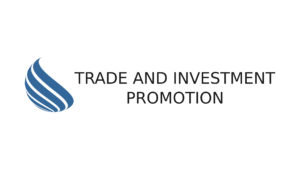In 2019, France was the leading destination for foreign investment in Europe. What is behind these outstanding results? Our Chief-in-Editor, Ms. Grujović, spoke with Mr. Christophe Lecourtier, CEO of Business France.
Christophe Lecourtier took up his position as Chief Executive Officer of Business France on September 14, 2017, and has many years of experience in the international development of the French economy. Mr. Lecourtier served as the French Ambassador to Australia between July 2014 and June 2017. During this time, he was part of a successful campaign to secure an order for a French ship-maker to build the next generation of Australian submarines (April 2016). He also succeeded in forging stronger bilateral ties between the two countries, with the signing of several Franco-Australian treaties, as well as a strategic partnership.
From February 2008 to March 2014, he held the role of Chief Executive Officer of Ubifrance, the French government agency for international business development, which became Business France after merging with the Invest in France Agency on January 1, 2015. During his tenure, he arranged for the agency to receive additional state resources to open 80 offices in 60 countries, focusing exclusively on supporting exports by French SMEs and mid-size companies. Ubifrance’s operations expanded significantly during this period; as well as holding more events and creating the France Export Team program, it also grew its client base and increased the number of young people working with French companies as part of the VIE international internship program.
- Business France has a long and successful history in supporting the international development of the French economy. How has the pandemic changed the work of Business France?
The way we work has changed significantly as we are a State agency, with our mission being to put people in touch with one another: in fact, we help build links between French businesses and foreign ones so that they can find outlets in markets all over the world, and we help foreign firms to settle and develop themselves further in France. The tens of thousands of physical meetings that we organize each year have had to be replaced by remote interviews. Compulsory digitization has had an impact on all our work: monitoring methods, prospecting channels and distribution methods; digital exhibitions are appearing, virtual prospecting methods are developing, and online export events are being set up.
In addition, we have had to increase our contact with French businesses because their need for information and coaching have greatly increased given the upheaval in the markets caused by Covid-19. We have thus expanded our missions to help them face the crisis.
From the start of the pandemic, we set up a three-part support plan for exporters along with our partners from Team France Export (TFE).
It consists of the following:
- Keeping them informed in real time on market news in nearly 70 countries to help them continue their international business and adapt their strategy if necessary. TFE’s international network provides precise and reliable insight into the business climate, the state of transport, payment failures, changes in regulations and even national support plans. To complete this information available online, TFE experts in the field have organized more than 170 webinars on geographic or sector-based themes since last April.
- Securing and developing their markets and commercial contacts. The TFE tracks business opportunities and identifies on its online platform requests from foreign buyers looking for French suppliers. It organizes digital prospecting using online meetings with local buyers, during which the products are presented and, sometimes, contracts concluded at a distance. Finally, businesses can entrust the relaunching of their recent prospects to local TFE teams.
- Preparing their post-crisis action plan. The TFE offers video-conference interviews with sector experts from the TFE office on the country or area targeted by the firm to provide it with the necessary information on the country chosen and recommendations to get started.
Regarding prospecting for international investors, our information and support mission is gaining momentum, with the creation of the Team France Invest (TFI) partnership, made up of regional development agencies, central and local administrations, public banks, etc. The TFI aims at better coordinating our actions and sharing more information through new digital tools to be more pro-active and responsive to our clients’ requests.
Thus, we will soon be sharing information on key existing investors among TFI with a new, secure digital tool; we will get more local intelligence to better anticipate investment opportunities and financial difficulties from businesses. Together with our regional partners, and even if it’s not our core-business we are also showing greater vigilance on acquisition projects, because of the increasing number of firms looking for acquisitions in France or Europe, with the risk of seeing strategic companies, weakened by the crisis, being acquired by predatory funds or companies.
2. Can you tell us more about the “France Relance” plan, the French economic recovery package to tackle the Covid-19 crisis?
The plan, which is part of phase three of France’s response to the crisis, supplements the urgent economic measures implemented at the beginning of the pandemic – €470 billion allocated during the economic emergency phase between March and May 2020 – and the €45 billion allocated this summer to support the most severely affected sectors (tourism, aerospace, automotive, tech and startups).
With a budget of €100 billion (including €47 billion from the €750 billion European recovery plan, based on a Franco-German initiative), “France Relance” plan aims to transform the crisis into an opportunity and to start building the France of 2030, with three main priorities:
- Supporting the transition to a greener, more sustainable economy (€30 billion).
- Fostering the competitiveness of companies (€34 billion).
- Raising skills and social cohesion (€36 billion) with measures that will enhance the employability of young people entering the labor market and adapt the skills of employees to the sectors of the future.
“France Relance” plan enhances the competitiveness of businesses based in France with three key measures:
- Significant and lasting cuts to production taxes, totaling €20 billion over 2021-2022.
- A €3 billion boost to the equity capital of SMEs and mid-size companies to support their growth.
- Supporting exports from France by SMEs and mid-size companies, to the tune of €247 million, with three incentives managed by Business France: a) “Export vouchers”: The government covers up to 50% of the cost of attending international trade fairs or using export support services; b) “VIE vouchers”: The government contributes €5,000 to the cost of VIE international internship programs; c) Free, tailored market intelligence for exporters.
“France Relance” plan has the potential to create new markets, thanks to the large-scale investments and government programs being deployed, generating a raft of opportunities for businesses: €6 billion to transform medical and social care institutions, €6.7 billion to improve energy efficiency and €3.1 billion to develop clean mobility. As such, “France Relance” plan sends an unambiguous message to foreign investors and their operations in France: the country welcomes their contribution to its continuing transformation. With this plan, there are opportunities for existing investors or newcomers, especially around the many calls for projects, tenders, subsidies for R&D or industrial projects supported by the plan. That is why the “France Relance” plan has become a key element in our strategy and communication.
3. The Covid-19 pandemic has rapidly accelerated the digital transformation of investment and export promotion agencies. Is Business France developing new digital platforms to support French exporters and attract more FDI?
We are fortunate, if I may say so, at Business France because when the pandemic broke out, we were putting in place new digital tools to make the alliance we have concluded with the Chambers of Commerce and Industry (CCI), Bpifrance and private key players operational and effective within Team France Export.
We have created 14 “regional solutions platforms” online, which are veritable export supermarkets, intended to inform, guide and prepare first-time exporters, covering all their needs: they bring together support and public financing for exports and the best of private sector offers (e-commerce, credit insurance, strategic advice, accounting expertise, translation and logistics). We have also set up a database shared with the regions and CCIs, which enables businesses to be monitored in a shared and personalized manner.
In terms of international investors, we have also developed new digital tools to keep in touch and manage projects with our customers and local ecosystems: for instance, a key project management tool accelerates the decision-making process and provides more services to potential investors in a secure digital space. We are also making greater pro-active use of social media, with webinars and more testimonials from businesses.
4. In 2019, France was the leading destination for foreign investment in Europe. What are the key factors of this success?
In 2019, France was the leading host country for foreign investment in Europe according to EY, attracting 19% of all job-creating foreign investment in Europe. The number of projects in France reached a record high of 1,468, thanks to an annual increase of 10%; they will create or maintain nearly 40,000 jobs.
What is behind these outstanding results? Firstly, France’s solid socio-economic key strengths. Secondly, the country’s ambitious transformation, led since 2017 by the government, to consolidate them: we have reformed our labor market, reduced capital taxation, lowered corporate tax, helped our SMEs to grow thanks to the PACTE Act, and invested hugely in innovation. Thirdly, the great confidence in our country and its future shown by foreign investors, who support these reforms and our entrepreneurial buoyancy. Fourthly, Brexit, with projects from UK-based investors jumping by almost 50%.
Find out more interviews here http://tradeandinvestmentpromotion.com/category/news/interviews/





